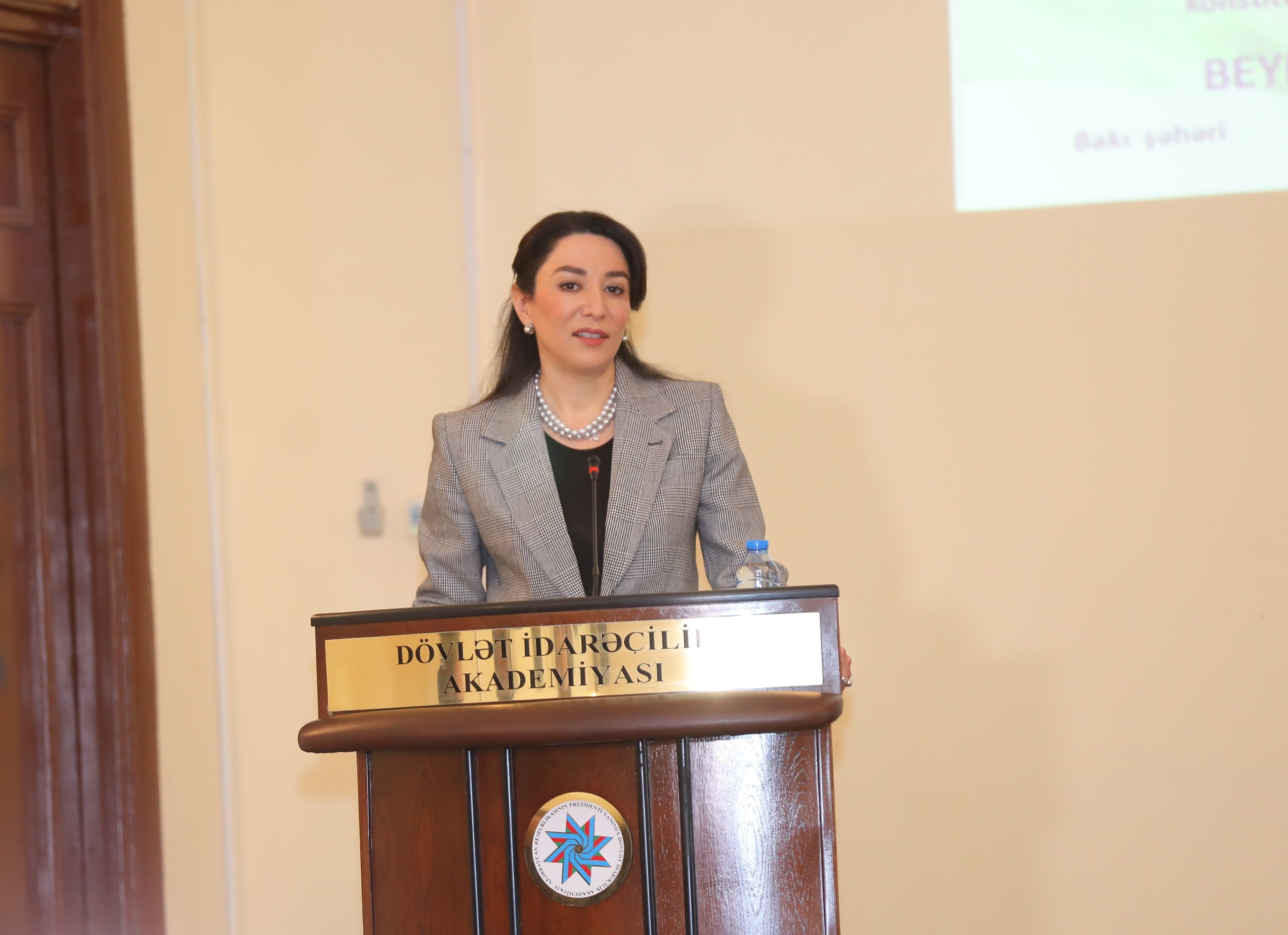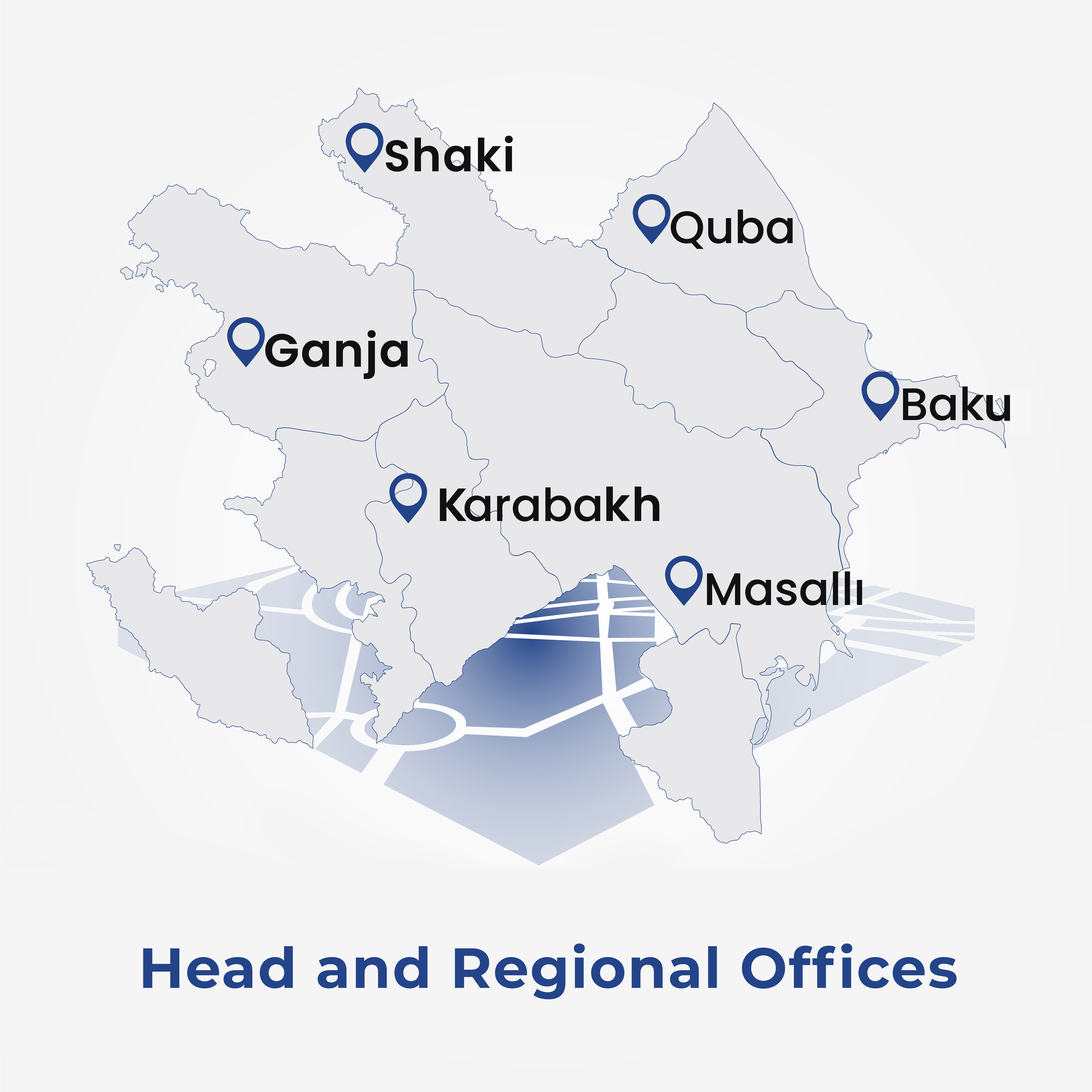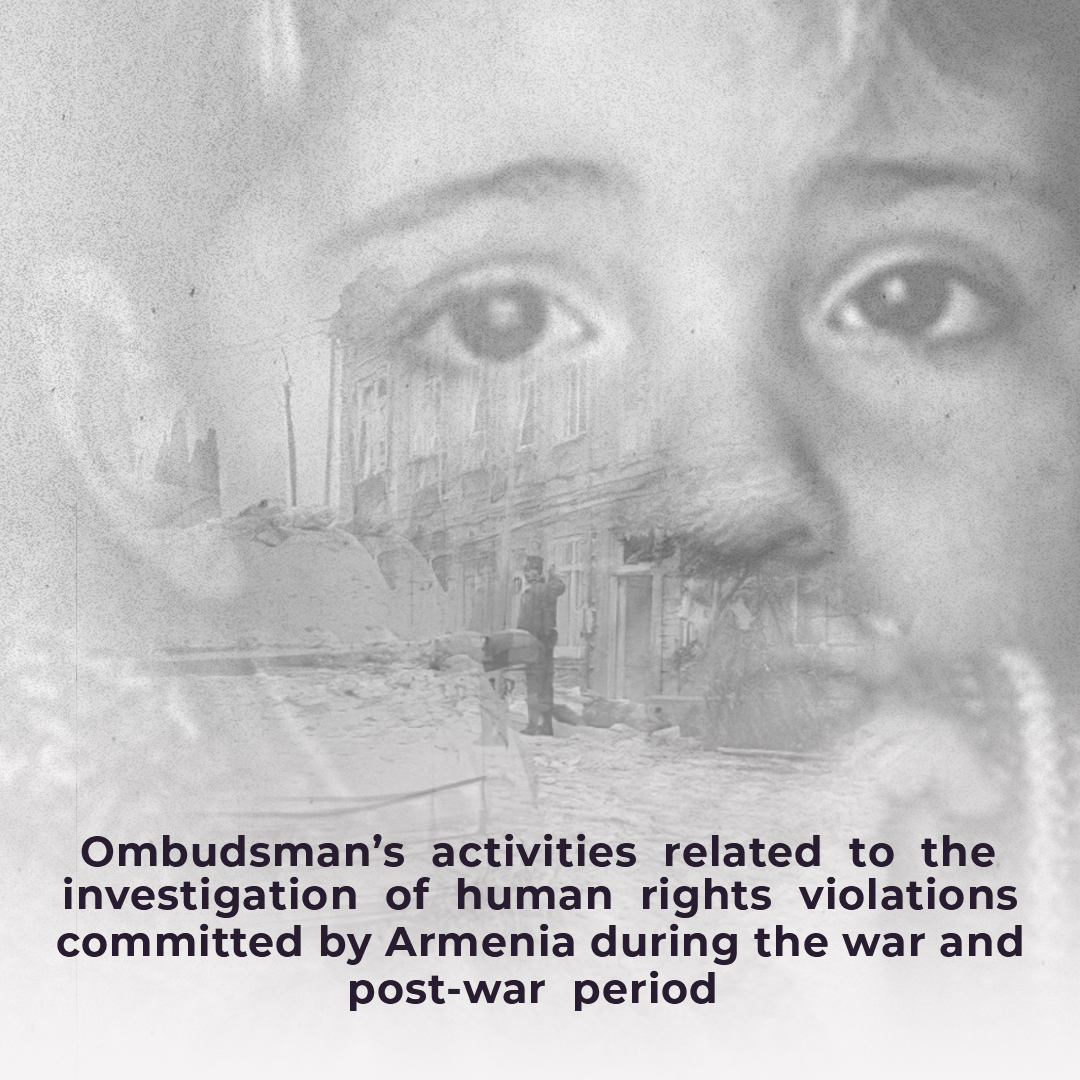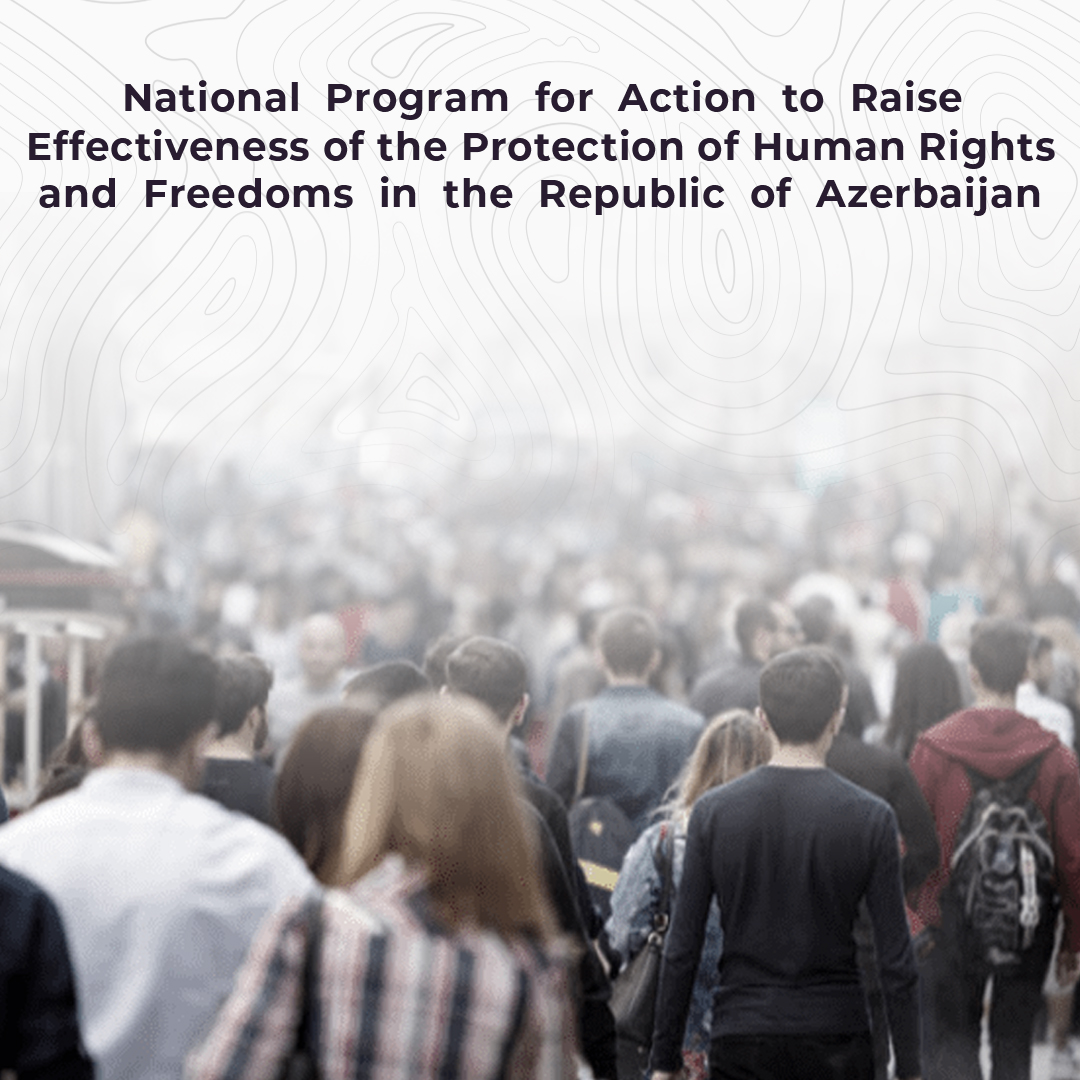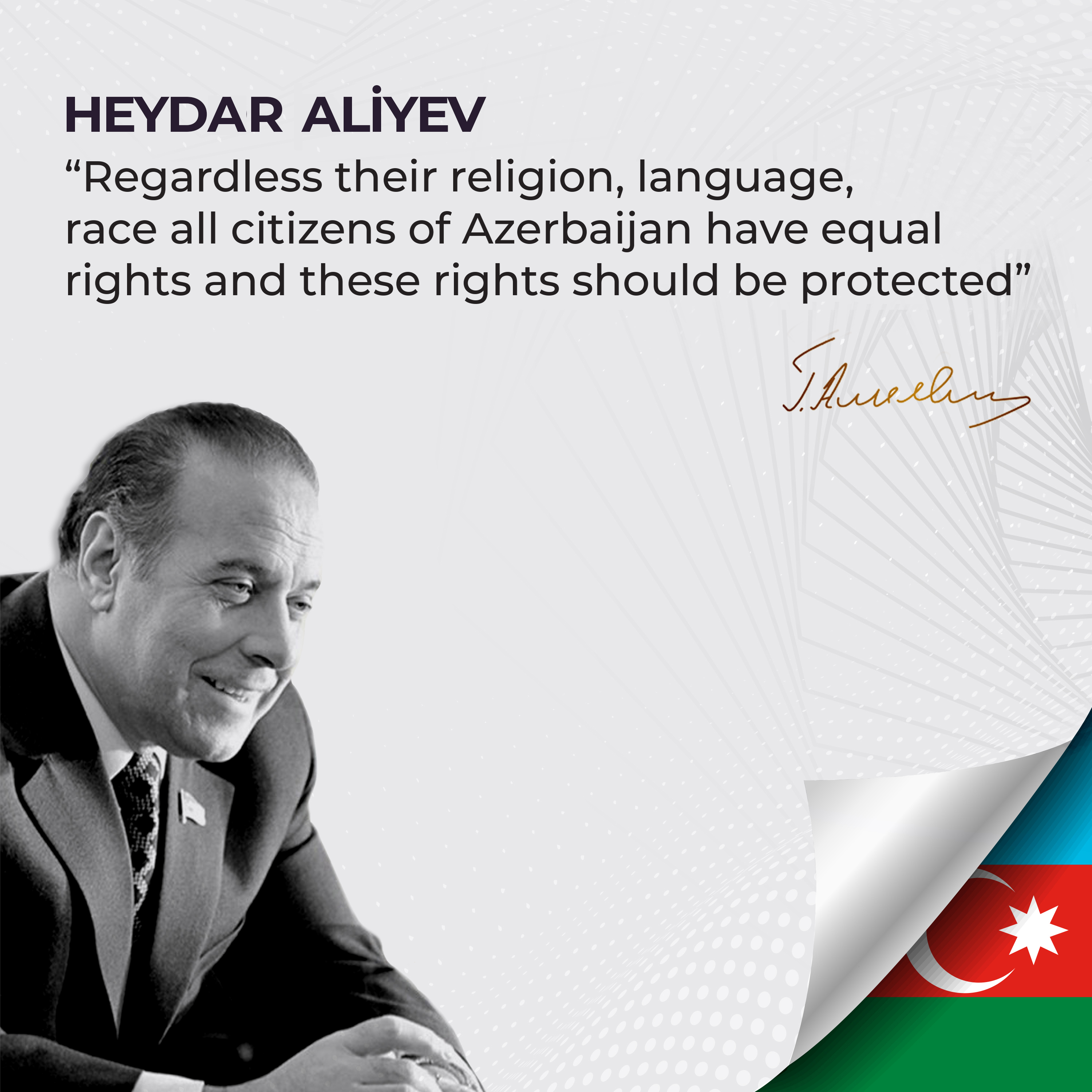
- Home page
- Commissioner
-
Activity Directions
- Mental Health and Human Rights
- Protection of the Rights of Population Groups
- Protection of the Right to Information
- Independent Monitoring Mechanism
- Legal Education
-
International Cooperation
- Cooperation with international organizations
- Cooperation with non-governmental organizations
- Study visits
- Projects
- Statements addressed to the international organizations
- “Ad hoc” reports
- Parallel and alternative reports submitted to the UN Treaty Bodies
- Oral and written statements submitted to the UN Human Rights Council
- Memorandums of cooperation
- Baku Declarations of Ombudspersons
- International Baku Forum
- Scientific Analytical Work
- Cooperation with Public and Civil Society Organizations
- Business and Human Rights
- National Preventive Mechanism Against Torture
- Protection of Human Rights
- Documents
- Media
- Live
- Contact
- Home page
- Commissioner
-
Activity Directions
- Mental Health and Human Rights
- Protection of the Rights of Population Groups
- Protection of the Right to Information
- Independent Monitoring Mechanism
- Legal Education
-
International Cooperation
- Cooperation with international organizations
- Cooperation with non-governmental organizations
- Study visits
- Projects
- Statements addressed to the international organizations
- “Ad hoc” reports
- Parallel and alternative reports submitted to the UN Treaty Bodies
- Oral and written statements submitted to the UN Human Rights Council
- Memorandums of cooperation
- Baku Declarations of Ombudspersons
- International Baku Forum
- Scientific Analytical Work
- Cooperation with Public and Civil Society Organizations
- Business and Human Rights
- National Preventive Mechanism Against Torture
- Protection of Human Rights
- Documents
- Media
- Live
- Contact
Call center
916
An international conference on “Fundamentals and historical aspects of the right to national identity”
.jpeg)
The Ombudsman of Azerbaijan, the State Public Administration Academy, and the International Ottoman Research Center jointly organized an international conference on the topic “An international conference on “Fundamentals and historical aspects of the right to national identity.”
Greeting the participants during his opening speech, the rector of the State Public Administration Academy, academician Urkhan Alakbarov, gave information about achievements gained during the past periods after regaining its independence. He said new management technologies used in our country significantly influenced the building of an inclusive society and safeguarding human rights and freedoms, including the right to national identity.
In her opening remarks, the Ombudsman, Sabina Aliyeva, emphasized that the year 2025 was proclaimed the “Year of Constitution and Sovereignty” in Azerbaijan, according to the Presidential corresponding Order, and that today’s conference is the first event devoted to the relevant topic.
The Ombudsman emphasized the importance of the issues related to the right to national identity in the modern era that have been stipulated in the international human rights law norms.
Noting that Azerbaijan had been subjected to ethnic cleansing, genocides, and occupations throughout history, the Ombudsman underlined the significance of the self-identification from the context of the restoration of rights that had been violated for many years. She also said that the people of Azerbaijan, who had been subjected to a genocide in the early of XX century, once again became a victim of a hatred policy by Armenia since the end of the century. Furthermore, it was noted that over 250 thousand Azerbaijanis once lived in Armenia, had been exposed to ethnic cleansing, and the erasure of their traces from the areas where they lived for centuries is a clear manifestation of the violation of their right to exercise the right to national identity and of the ethnic hatred policy.
The Ombudsman highlighted that Azerbaijan has made significant efforts for the preservation of the national identity and development of a balanced model of global integration, as well as that our country has become an example for the world with its centuries-old traditions of tolerance and multicultural environment.
A distinguished Turkish historian and member of the International Ottoman Research Center's Board of Directors, Professor İlber Ortaylı, later spoke on the subject of "The Road to Independence: In the Context of Relations between the Turkic World and Azerbaijan." The professor pointed out that other nations might learn from the tight ties that have existed between Azerbaijan and Türkiye throughout history, as long as they cooperate in all fields.
Ilber Ortaylı stressed that the Turkic peoples cherish their national and spiritual values and have maintained their national identity for millennia when discussing the shared history of Azerbaijan, Türkiye, and the Turkic world overall.
The lecturer also pointed out that Armenians, who have been a part of many empires over the years, had developed an unjustified enmity toward Azerbaijanis.
Azerbaijan State Pedagogical University's Vice-Rector for International Relations, Professor Mahira Huseynova, spoke on the subject of "Forced deportation of Western Azerbaijanis and the strategic goals of the Armenian state." She stated that during the past century, Azerbaijanis have been expelled from Armenia, that religious and cultural sites have been demolished there, and that our compatriots' rights and liberties have been flagrantly abused. According to M. Huseynova, the right to return of our compatriots who escaped Armenia to their ancestral homelands is their right establshed by international treaties.
Professor Solmaz Rustamova-Tohidi, a senior researcher at the Institute of Oriental Studies of the Azerbaijan National Academy of Sciences, addressed the topic of "History of Recognition of the Right of National Affiliation of Azerbaijanis: From National Identity to Constitutional Law" in her speech. She brought up topics like the role and position of Azerbaijanis in the South Caucasus, as well as the historical and legal recognition of their national identity and affiliation.
- National preventive mechanism against torture
- Protection of the rights of population groups
- Protection of the rights of refugees, IDPs and migrants
- Protection of the rights of detainees and prisoners
- Protection of the rights of military servants
- Protection of women's rights and provision of gender equality
- Protection of child rights
- General
- Legal awareness
- Protection of the rights of older people
- Protection of the rights of persons with disabilities
- Cooperation with public and civil society
- National preventive mechanism against torture
- International cooperation
- Non-Governmental Organizations
- Public hearings
- Mass media
- Business and Human Rights
- Protection of the rights of martyrs' families and war veterans
- Protection of the rights of migrants
- Prevention of discrimination and ensuring equality
- Right to information
- Mental health
- .
-

- The Ombudsman participated in the International Conference on “Artificial Intelligence and Human Rights: Opportunities, Risks and Visions for a Better Future” in Qatar.
-

- The Ombudsman sent letter to UN High Commissioner for Refugees regarding protection of rights of persons deported from Armenia.
-

- A representative of the Ombudsman Office took part in an event organized by the Ministry of Energy.
-

- The Ombudsman’s representatives participated in the Pardon Decree Enforcement Ceremony.
-

- A series of legal awareness events were organized by the Ombudsman's Regional Centers.
-

